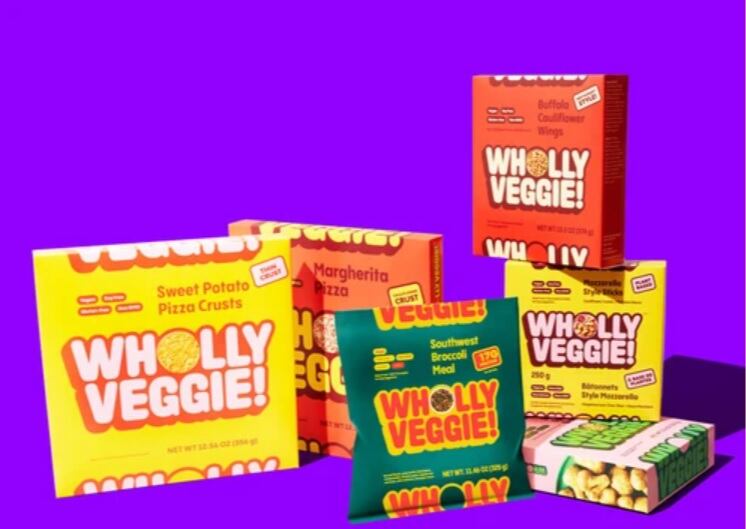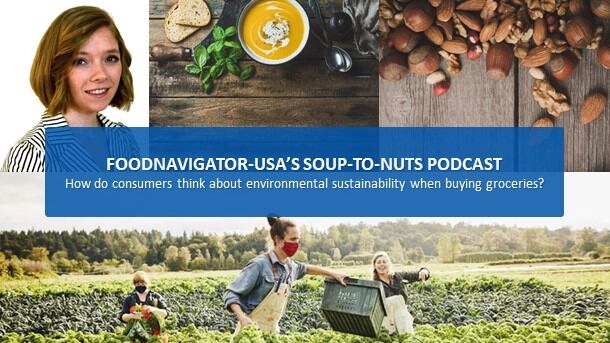The Canadian plant-based company, whose mission is to put vegetables center-stage in frozen plant-based foods, recently launched three new products in its appetizers range: vegan Mozzarella sticks and Cheddar sticks, both with a crispy cauliflower panko coating, and sweet potato popcorn, its plant-based version of chicken popcorn made from chunks of cooked sweet potato covered in a crispy chickpea crumb.
According to the co-founders, John Bonnell and David Orr Gaucher, these snacks are in-line with changing eating habits, notably a rise in demand for both frozen products and products that can be prepared in air fryers.
“We saw over the course of COVID and even before, the impact that air fryers have had on the increased adoption of frozen snacking, but also a general consumer desire to explore outside of fake or faux plant-based burgers and sausages,” Bonnell said.
According to a survey commissioned by the American Frozen Food Institute (AFFI), 70% of consumers have been purchasing more frozen food than before the start of the coronavirus pandemic.
company prides itself on making vegetables the hero ingredients of its products but the cheese sticks mark Wholly Veggie’s first foray into non-dairy. It worked with a partner in the Mid-West to develop a vegan cheese that had the right functionality – meltable but with ‘hold’ – while being clean label.
Upcycled ingredients
However, its focus is still on making healthier versions of ‘guilty favorites’ that tend to be high in salt, sugar and fat, according to the co-founders.
“We don’t take offense at the word ‘junk food’ because we are trying to offer a better version of that,” Orr Gaucher said. “If people want to watch Netflix and eat cauliflower wings on a Friday night then so be it; it’s better than what they were eating before. If they are eating vegetables and shifting their diet, but still getting that comfort they found in food, it is a great position for us to offer that.”
The company also aims to make products that are compatible with people’s expectations of plant-based products regarding sustainability. For its new products, it partnered with Outcast Foods, a Canadian company that takes unsellable or rejected produce and upcycles it into added-value ingredients for food manufacturers. The cauliflower crumb on Wholly Veggie’s vegan cheese sticks is made with upcycled cauliflowers that would otherwise have gone to waste.
Meanwhile, Wholly Veggie recently underwent a rebranding, giving more prominence to the brand name and free-from claims, and breaking away from the industry standard of devoting up to 60% of the front-of-pack to a product image.
Nitrogen enrobing technology
Next year, Wholly Veggie plans to launch three additional SKUs in its frozen entrée (main meal) range: Thai curry, cauliflower mac & cheese, and southwest chili.
“They have a comfort feel but are nutritionally dense and a good source of plant-based protein and vegetables,” said Bonnell.
The vegetables used in Wholly Veggie’s upcoming entrée range will be sourced from Europe where the company works with a supplier that uses a nitrogen enrobing technology. This allows it to lock in the vegetables’ nutrients and extend the shelf-life without the use of preservatives – a unique technology that the company struggled to find in North America, Orr Gaucher said.
“The vegetables we source get harvested and flash frozen within 90 minutes of being picked in the field, and the way the blanching and freezing takes place, gets the enzymes activated just to the point where it is perfectly good for consumption but doesn’t start to decay. It’s the optimal time to consume the vegetable and because it’s all frozen, there is no waste. That’s the beauty in terms of tackling waste,” said Orr Gaucher.
But would sourcing vegetables domestically, rather than from across the Atlantic, not make more sense for a brand that positions itself on sustainable eating?
Not necessarily, according to Wholly Veggie. The carbon emissions associated with transporting cargo overland from California to New York are greater than shipping-related emissions from, for example, China to California, said Orr Gaucher.
“When you are shipping huge volumes on highly efficient vessels, it’s the most sustainable way of moving freight around from a carbon emissions standpoint,” he said. “Frozen storage does consume energy […] but the impact of wasting food is bigger than the cost of maintaining food in a frozen state.”
“The direct-to-consumer delivery business is a way bigger challenge because you are shipping small boxes in cars to people’s homes,” he added.



